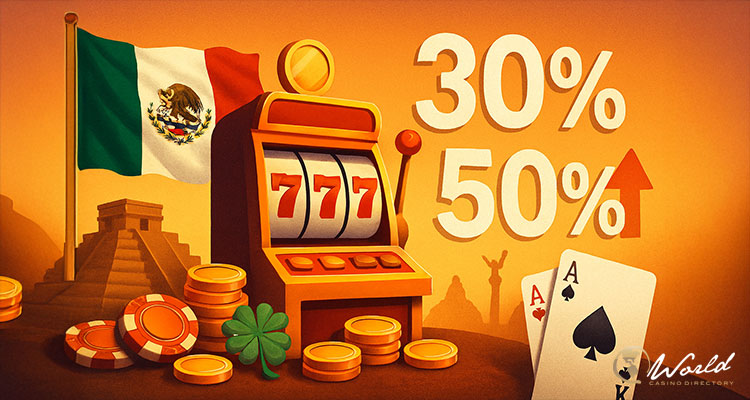In a bold move, Mexico’s 2026 Economic Package has proposed a substantial tax hike on gambling, targeting both land-based and online operators. The current tax rate, set at 30%, could surge to 50%, placing Mexico among the highest-taxed jurisdictions for gambling in Latin America. This initiative is part of the government’s broader plan to implement so-called “healthy taxes” that include increases on other goods associated with public health risks, such as soft drinks, tobacco, and violent video games.
The Economic and Social Drivers Behind the Tax Hike
According to Mexico Business News, the proposal aims to raise federal revenues, with expectations to exceed MX$8.7 trillion, and a specific target of MX$5.8 trillion in tax income. This fiscal shift is positioned to address growing concerns over the social costs linked to gambling, alongside other “sin taxes” on products that the government views as harmful to public health.
Finance Secretary Rogelio Ramírez de la O and President Claudia Sheinbaum have emphasized that these measures will bring Mexico in line with international tax standards while tackling the societal impacts of gambling. While the increase is expected to generate significant income, some industry stakeholders argue that it could undermine Mexico’s $10 billion gambling market, especially by deterring foreign investment in a fast-growing sector.
Business groups and trade organizations, like AIEJA, the Mexican trade body for gambling licenses and suppliers, have already raised concerns about the heavy tax burden. AIEJA has launched a national media campaign, urging the government to recognize the potential of gambling as a strategic economic contributor. The organization argues that a regulated and well-supported gambling industry could drive innovation and boost sectors like technology and tourism, ultimately contributing more to Mexico’s broader economic growth.
However, despite lobbying efforts, the Sheinbaum administration remains committed to the reform. According to Amador Zamora, a representative from the Ministry of Finance, the 2026 Economic Package seeks to make Mexico a more competitive and fairer nation, and these higher taxes are seen as part of that vision.
Aiming for Fiscal Stability Amid Rising Costs
The proposed tax hike on gambling is just one component of a larger effort to stabilize Mexico’s finances. The federal budget for 2026, projected at MX$10.1 trillion, is aimed at addressing a significant fiscal deficit of 4.1% of GDP. Public debt is expected to rise to 52.3% of GDP, though it remains lower than in many regional peers, such as Brazil or Argentina. The government is also seeking additional domestic and foreign debt to fund infrastructure and social programs, despite the deficit.
While Mexico’s fiscal situation is considered stable, the country faces significant geopolitical and economic challenges. The ongoing tension with the U.S. over energy and trade policies, as well as the anticipated impact on near-shoring investments, could affect the broader economic landscape. Despite this, Sheinbaum’s administration aims to continue pushing for reforms that will balance Mexico’s tax system.
As the tax proposals move through the legislative process, they face hurdles. The lower house must approve the income law by October 20, with the Senate’s review due by October 31. The final budget is set for approval by November 15. Some stakeholders fear that the government’s focus on taxation may overshadow the much-needed modernization of the Federal Gaming and Lottery Law of 1947, which is seen as outdated in light of the current digital landscape.
This modernization, which has been discussed for years, could potentially ease some of the challenges the gambling industry faces under the current legal framework. However, it remains unclear whether tax reform will be prioritized over broader regulatory updates.



